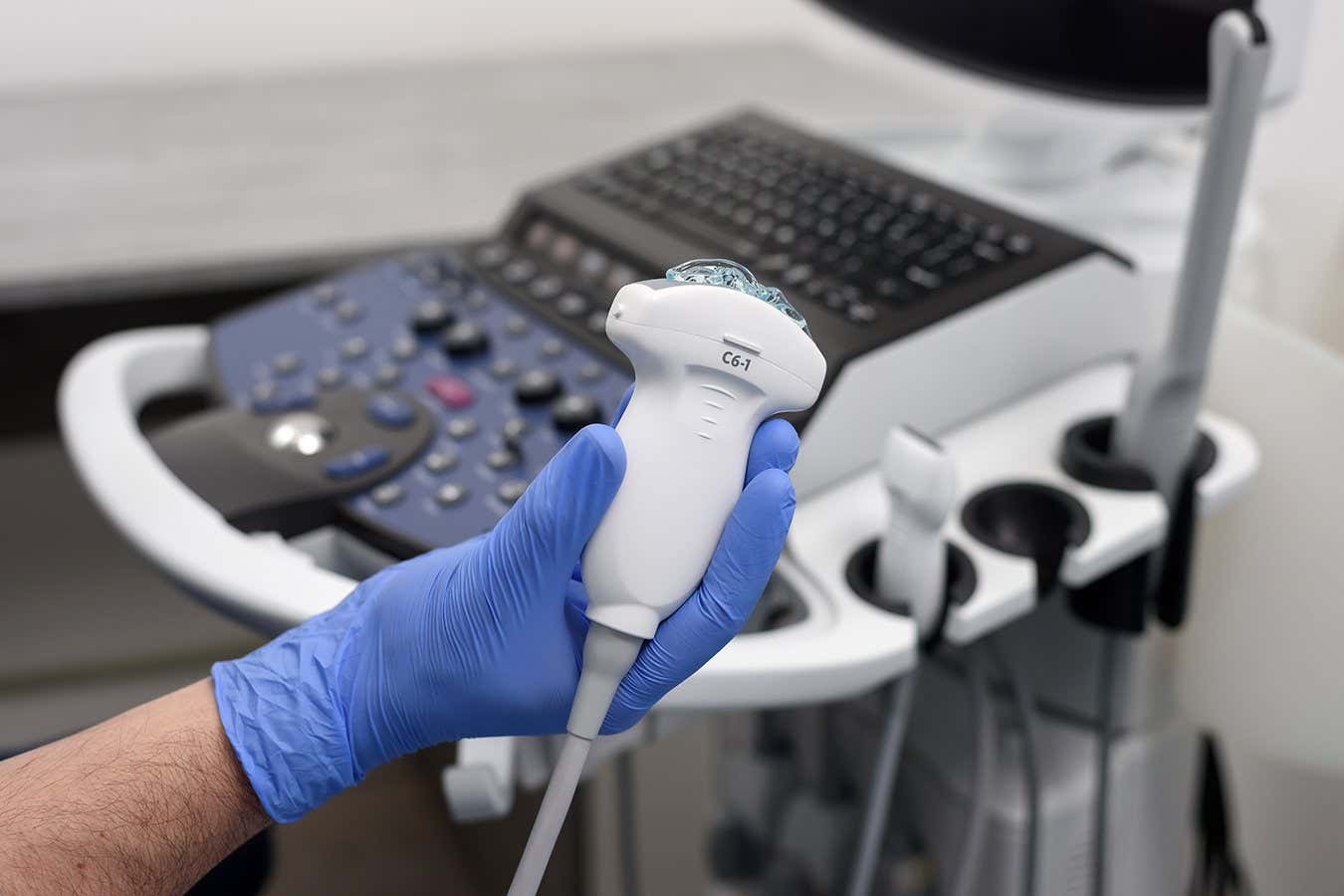Vaccinations could be made less painful by treating skin with a vaccine-laden liquid and using ultrasound to push it into the body
By Karmela Padavic-Callaghan
4 December 2023
Ultrasound can be used to send vaccine molecules through the skin
Andrey Zhernovoy/Shutterstock
Vaccines can be delivered through the skin using ultrasound. This method doesn’t damage the skin and eliminates the need for painful needles.
To create a needle-free vaccine, Darcy Dunn-Lawless at the University of Oxford and his colleagues mixed vaccine molecules with tiny, cup-shaped molecules made of protein. They then applied this liquid mixture to the skin of mice and exposed it to ultrasound – like that used for sonograms – for about a minute and a half.
Read more
Ultrasound opens brain barrier so drugs can reach aggressive tumours
Advertisement
At first, the ultrasound pushed the mixture into the upper layers of skin, where the shape of the protein molecules caused bubbles to form. As ultrasound kept hitting the skin, those bubbles burst, pushing the vaccine deeper. As the experiment went on, the action of the bubbles breaking also cleared some dead skin cells, making the skin more permeable and allowing more and more vaccine molecules make it through.
A needle pushes vaccine molecules all the way into the muscles beneath the skin, while the ultrasound technique just delivers the vaccine to the upper layers of skin. But this more shallow process is sufficient for immunisation, says Dunn-Lawless.
In tests with live mice, the researchers found that while the ultrasound method delivered 700 times fewer molecules of vaccine than conventional jabs, the animals produced more antibodies. The researchers say that the mice didn’t show signs of pain and there was no visible damage to their skin. The increased production of antibodies may be because there are more immune cells in the skin than in muscle, but the researchers are still investigating, says Dunn-Lawless. He presented the research at the Acoustics 2023 conference in Sydney, Australia, on 4 December.
